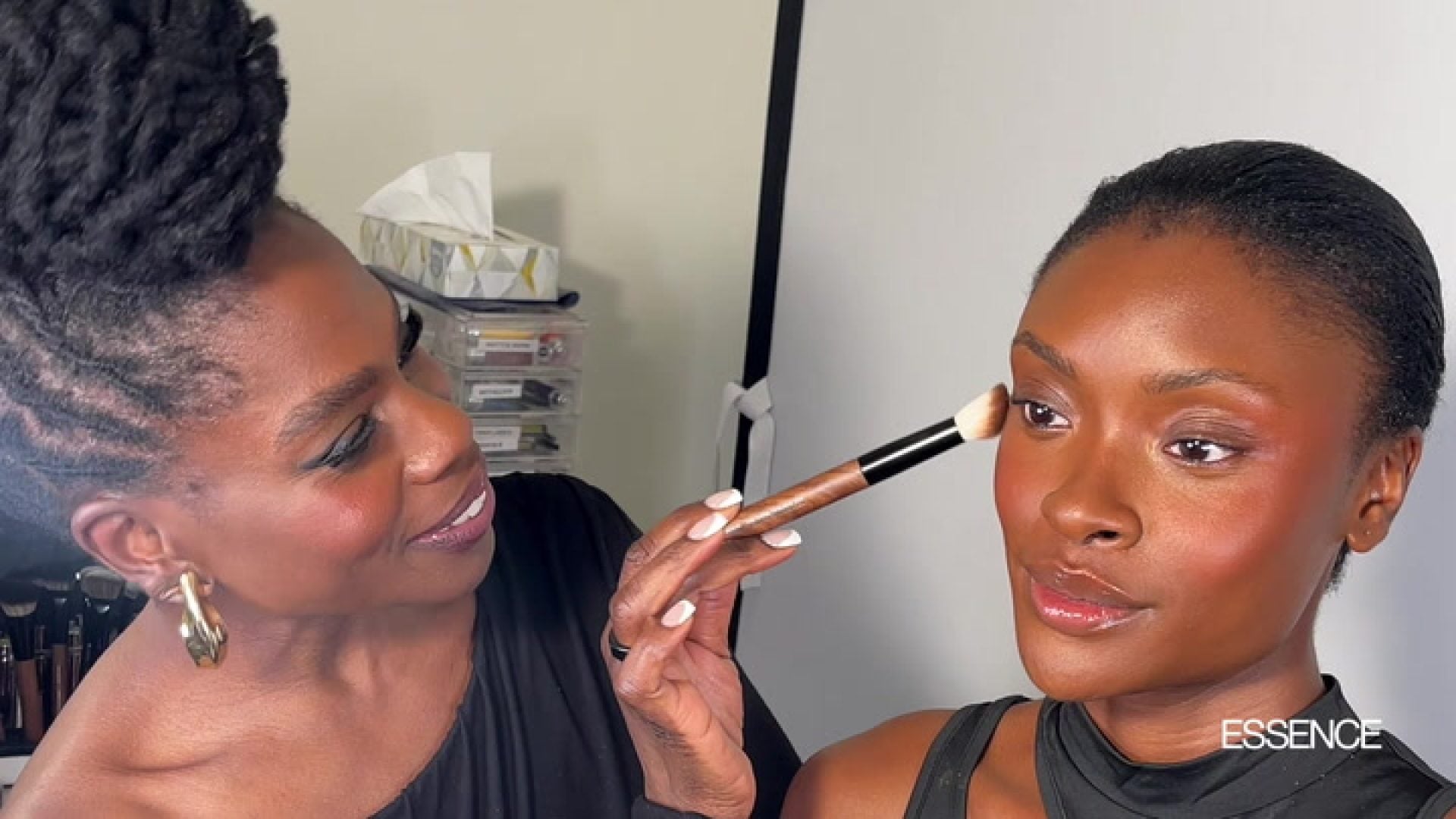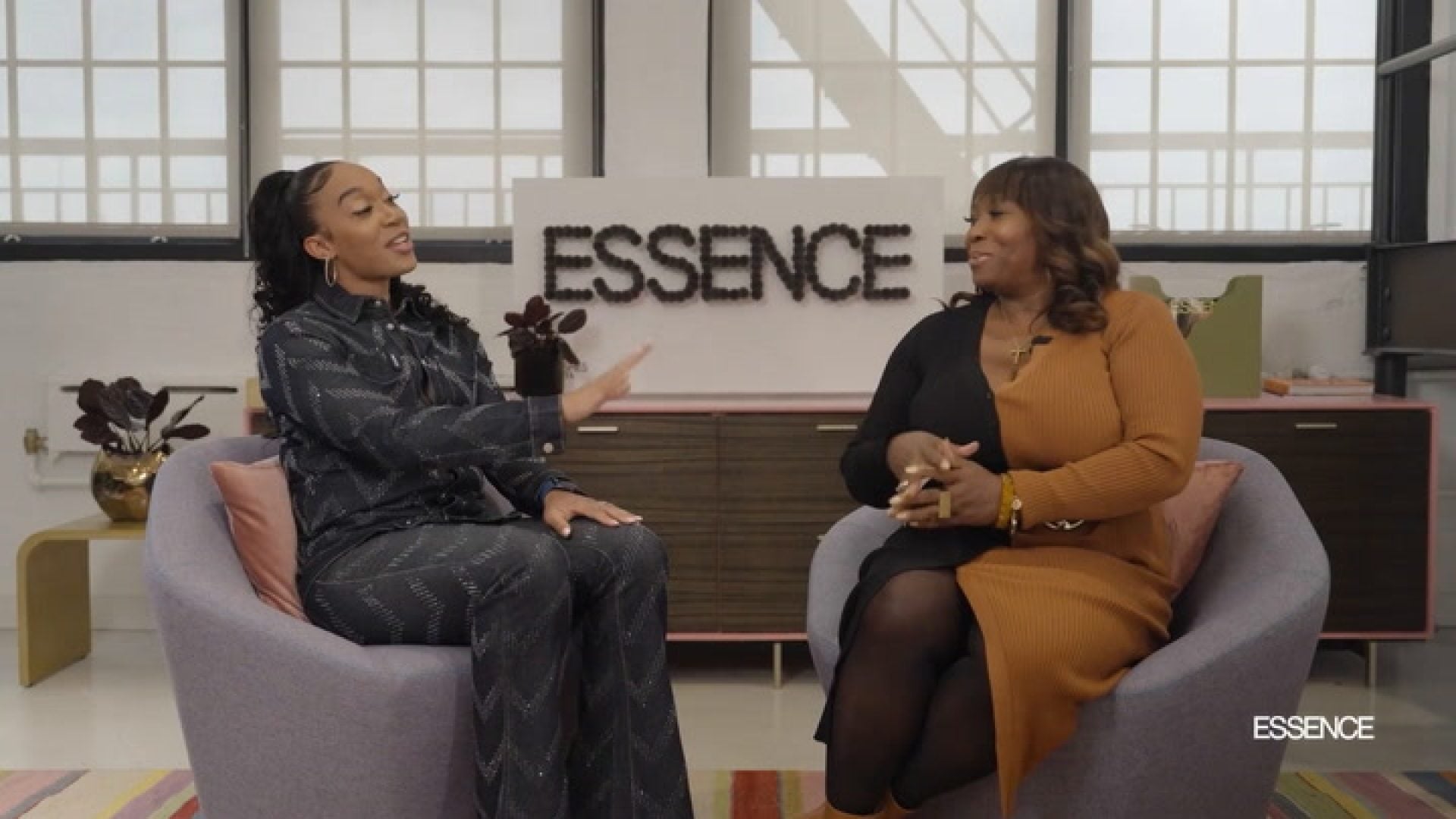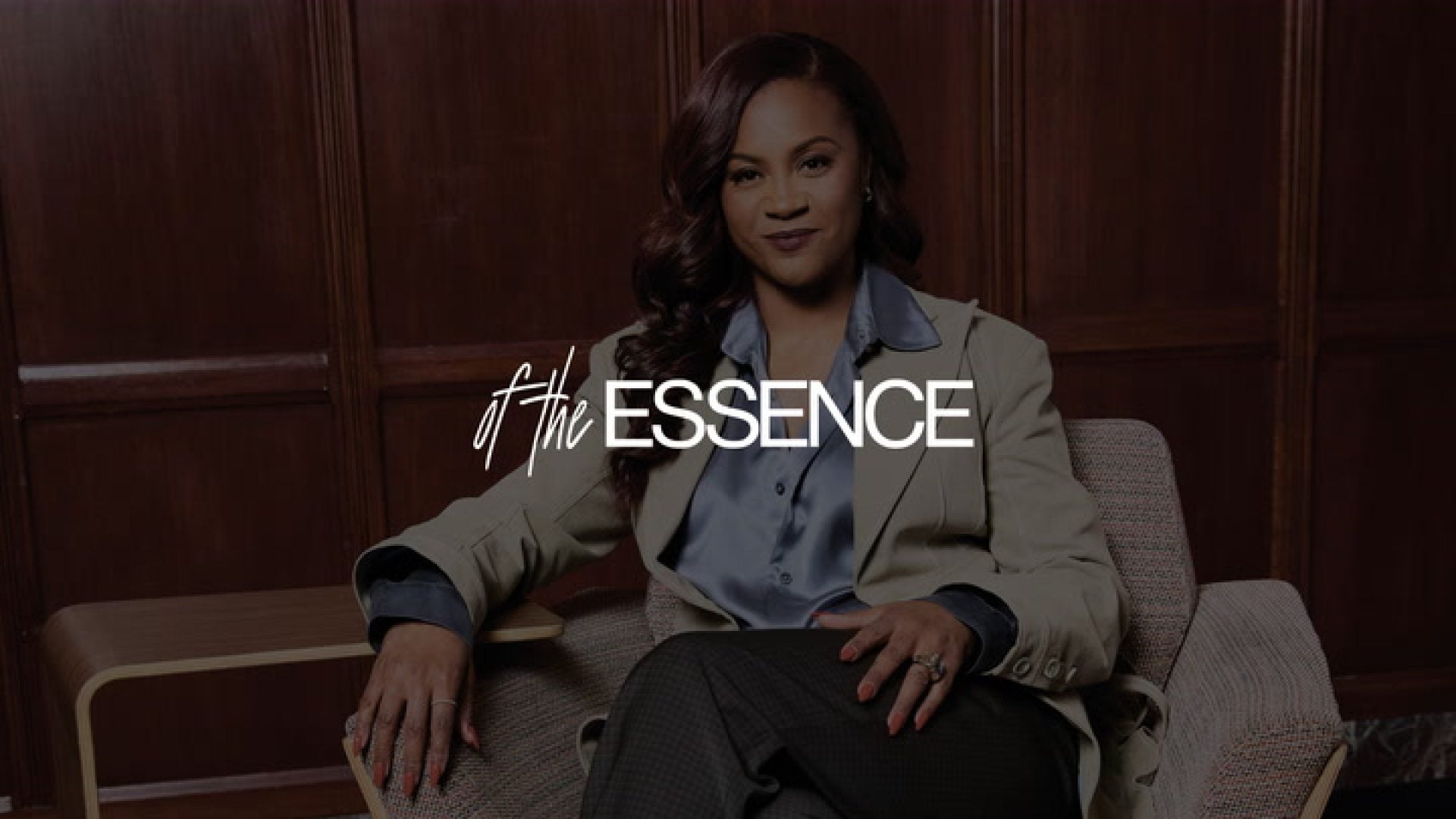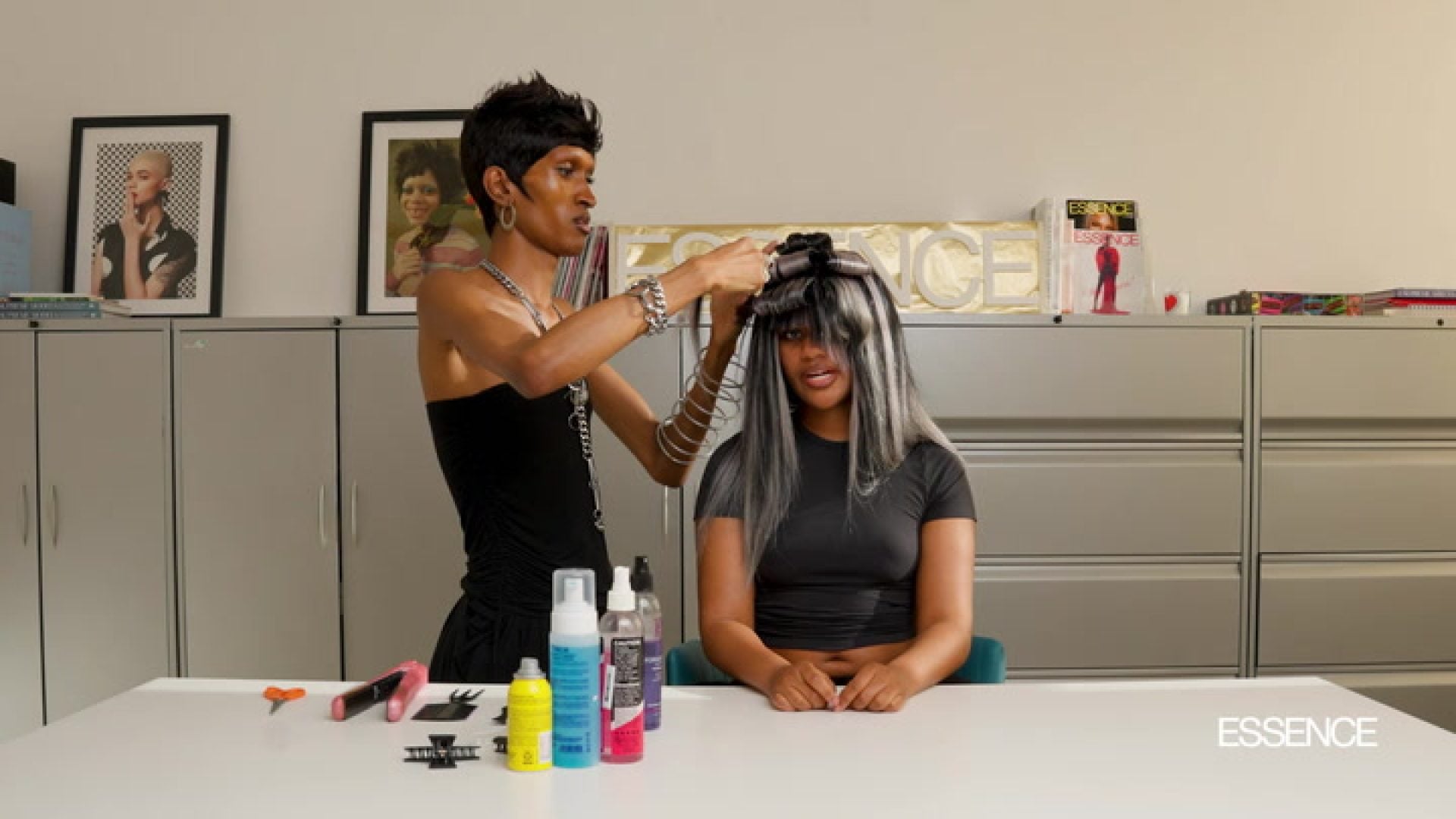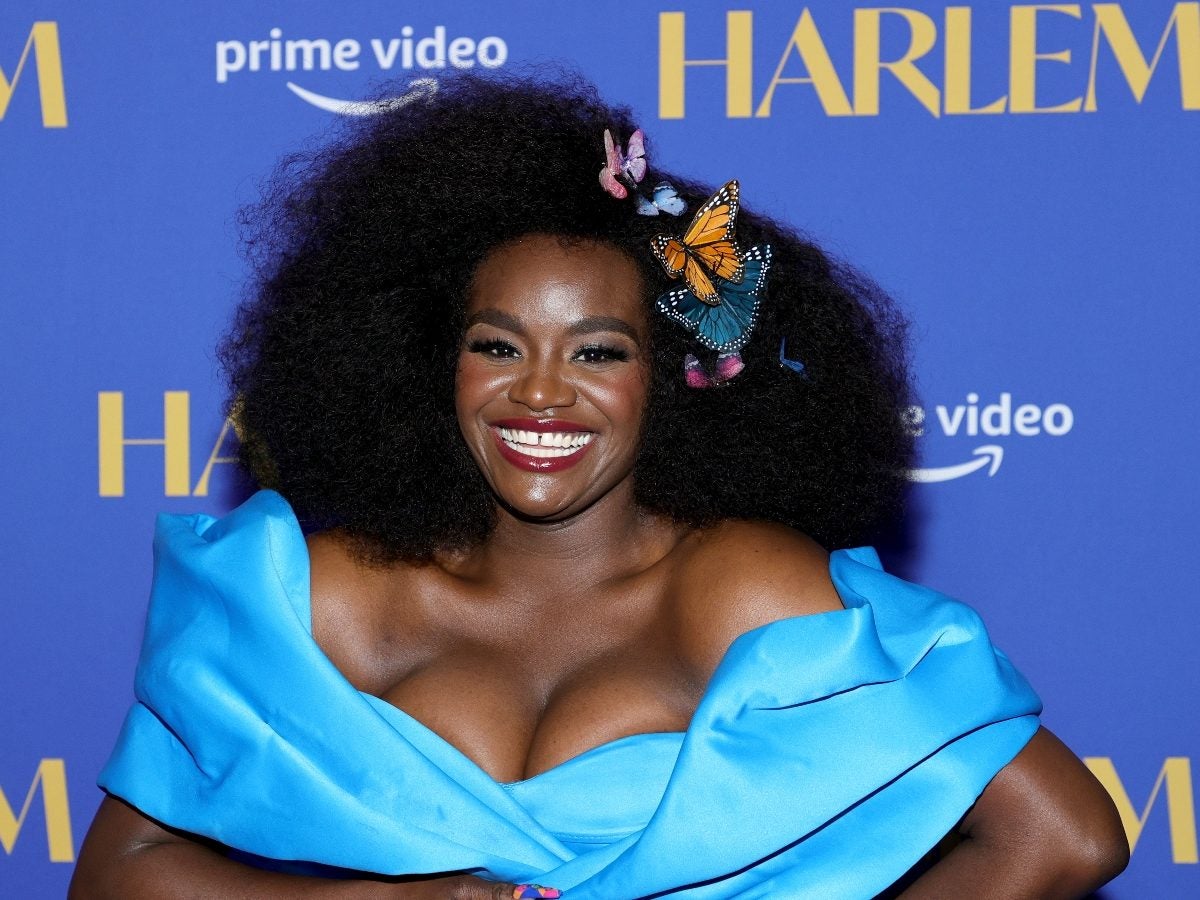
When Shoniqua Shandai was a young girl, her favorite movies were The Little Mermaid and What’s Love Got To Do With It? The two films are certainly on the opposite side of the spectrum. But for a little Black girl yearning to see herself represented on screen, Shandai had to take what she could get.
Angela Bassett as Tina Turner gave the future actress a powerful, fierce and fashionable portrayal of a brown-skinned woman even in the midst of her struggles. Watching her on screen, Shandai recalled saying to herself, “I want to do that. I want to be that woman.”
Bolstered by a multi-talented grandmother and a nurturing mother, Shandai, a Virginia native who stars as Angie in the new Prime Video series Harlem, eventually got there. But it was a journey. One that called for her to love herself first.
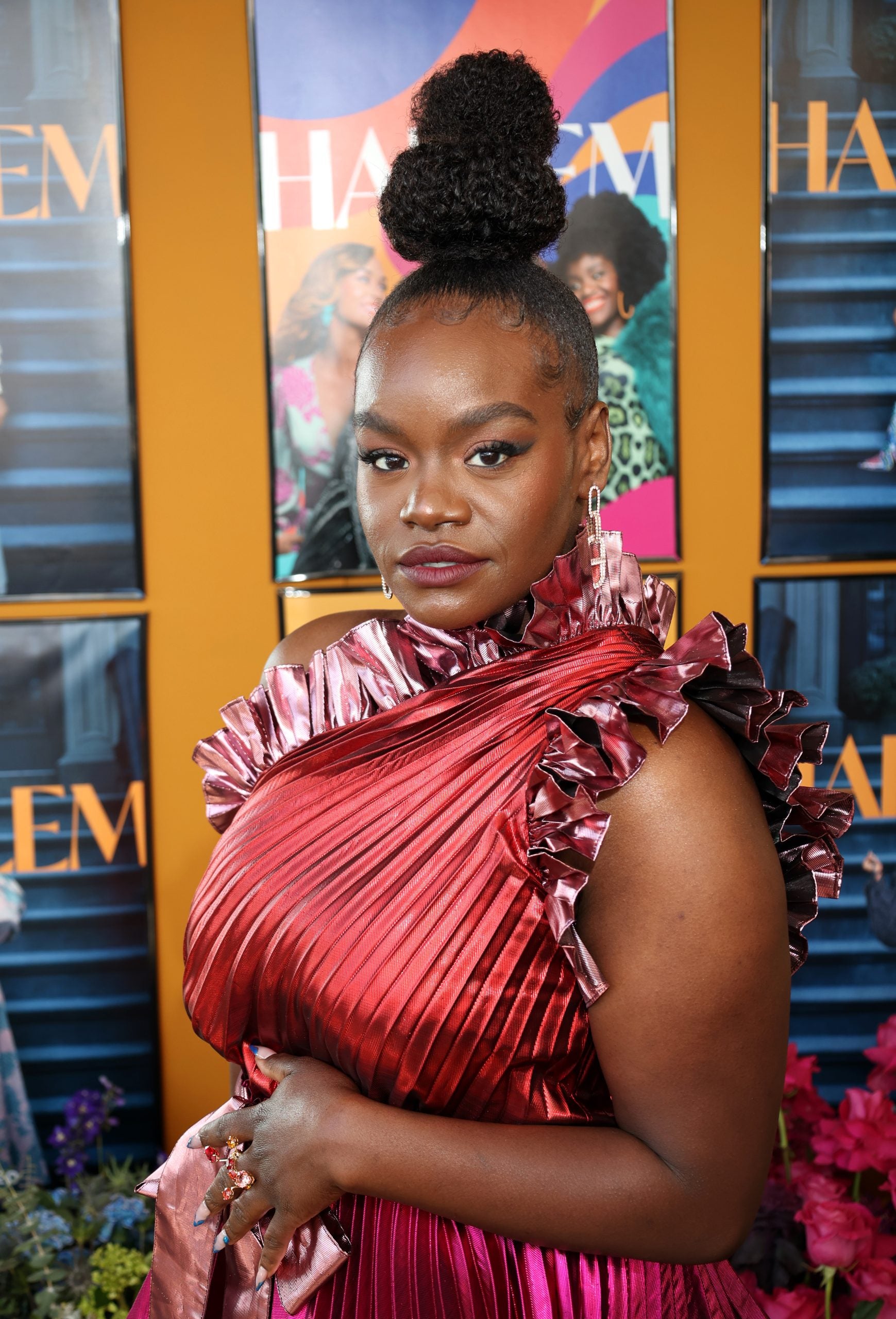
The daughter of an absentee father, as a young girl Shandai felt that there was something about her that innately made her unlovable. Sadly, that belief was affirmed in the way she was treated outside of her home.
“Being a dark-skinned curvy woman with gapped teeth–-kids are hard,” Shandai told ESSENCE. “It’s tough.” Growing up in an environment where adults are battling their own issues, it’s easy for children to become targets, she explained.
“When you’re struggling, you don’t have the emotional intelligence or patience to speak to your child a certain way. If [kids are] getting it rough at home, they’re going to give it rough. They’re going to get it out. I felt like for a lot of my childhood, I was the board for people to throw it at. I became the source for a lot of children’s rage.”
Shandai was that board from elementary school until her sophomore year of high school when she finally had enough. “I spent my whole freshman year trying to disappear. I wore hats, I wore sweatpants,” Shandai said. “I thought, ‘If I can disappear, they won’t talk about me.’ And I still got talked about. That was the time I started forming the idea that I gotta love me regardless. It was my sophomore year and I said, ‘You know what, I’m just gon’ shine.’”
Shandai cited the emergence of “that daggone Beyoncé” and Kimora Lee Simmons’ book Fabulosity: What It Is & How to Get It in helping her transformation. “The hallways became my runways,” Shandai recalled. “I said I’m going to be in here in sequins and gold because when I tried to hide, people were talking. I might as well show up.”
Living more authentically, Shandai also took some risks in terms of her career. With the help of her supportive mother, Shandai and her family packed up and moved to Los Angeles in order for her to pursue her dreams of acting.
“We came to L.A. to explore colleges and the whole family fell in love,” Shandai said. “Honestly, I would not have made the journey that it took to create this career. I could never have done the first step of it without my family. (L.A. is overwhelming. You have so many people out here who put on costumes in order to become something. And they tell you to put on more costumes.) If I didn’t have a core base to remind me who I was, who I serve, to keep me humble.”
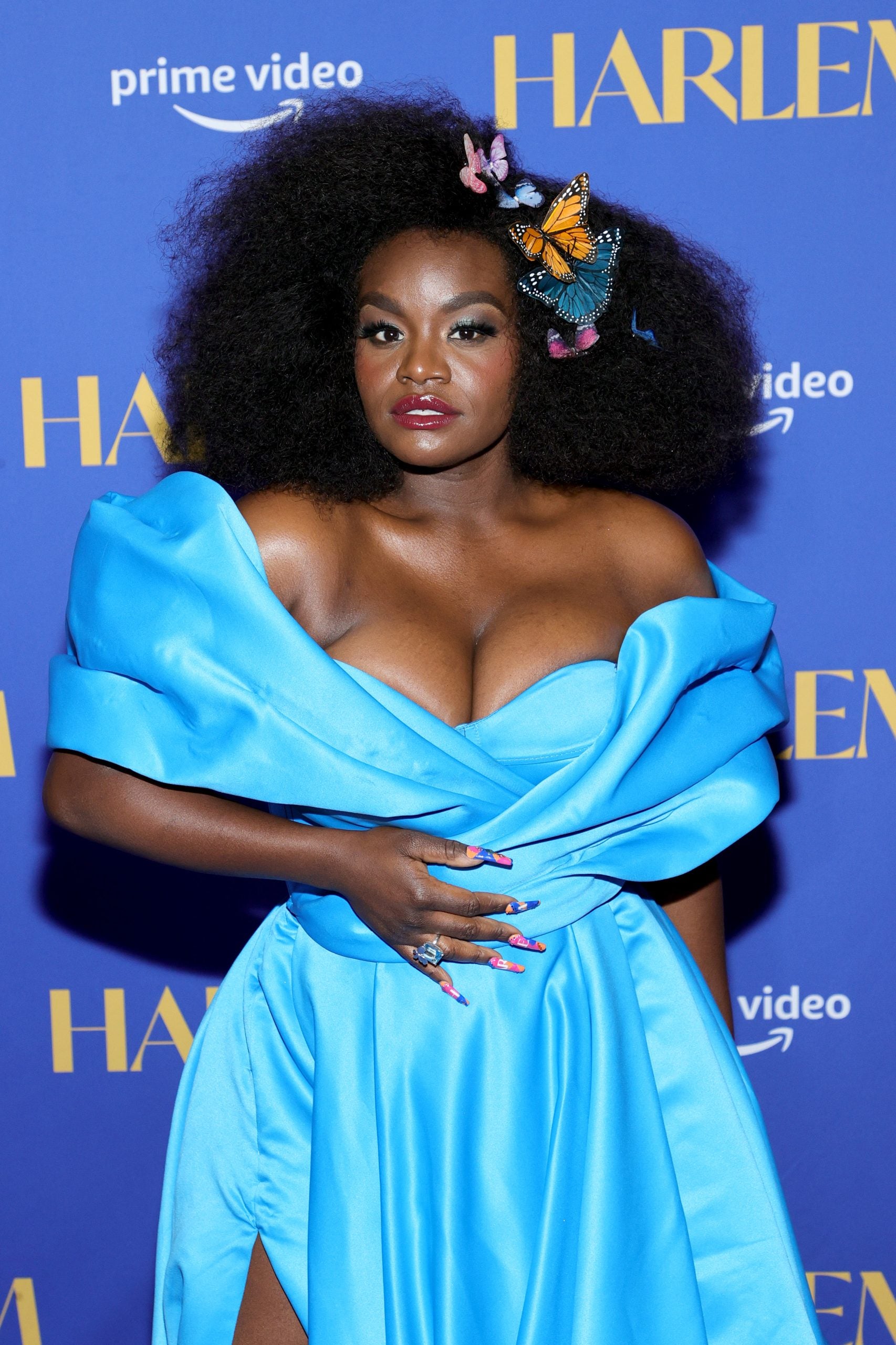
After finding success in theater and singing and songwriting, Shandai got the call to audition for Harlem. While she recognized it was a great opportunity, there was something that still gave her pause.
“I got the audition notification from my agency and it said nudity,” Shandai recalled. “I called my agent and I said, ‘You know I don’t do that. I think you sent this to the wrong person.’”
Shandai’s team put in a call to the show’s creator Tracy Oliver who informed Shandai’s team that they were willing to remove it in order for her not to feel uncomfortable.
“I already was a fan,” Shandai said. “But the fact that my beliefs were completely honored with her–I’m like, ‘Okay, she’s got a heart for people.’”
Once Shandai knew the show wasn’t going to cause her to compromise her values, she read Angie’s lines and fell in love.
“I saw myself. I saw my aunties. I saw Jenifer Lewis. I saw all these women in this one person,” Shandai said. “She’s been a minor character in other stories, just seen as a booster, a quick laugh or a joke. The woman that the world has made into a permanent stereotype, a side character, really gets to take the lead and tell her own story. I said, ‘I’m about that.’”
And it doesn’t hurt that in this newfound limelight, Angie gets to be fly as hell. “I’m so excited about this show. I think it will really allow a different conversation for women in fashion. It’s high fashion. Because that’s who I want to be.”
But the fashion industry was built on exclusion. “The same way it’s been a limited perspective on TV, it’s the same way in fashion,” Shandai admitted. It doesn’t make sense to her.
“Black women and Black, curvy women dress down. Our culture is so limitless, why would we be cast out of fashion? They’re taking from our neighborhoods anyway.”
Harlem, on the other hand, seeks to project a different, more realistic and inclusive image.
“Finally, to see ourselves represented in a way that allows us to be the main character, the ingénue, when they’ve made us so marginalized,” Shandai said. “I’m just so grateful for Angie and Tracy.”
